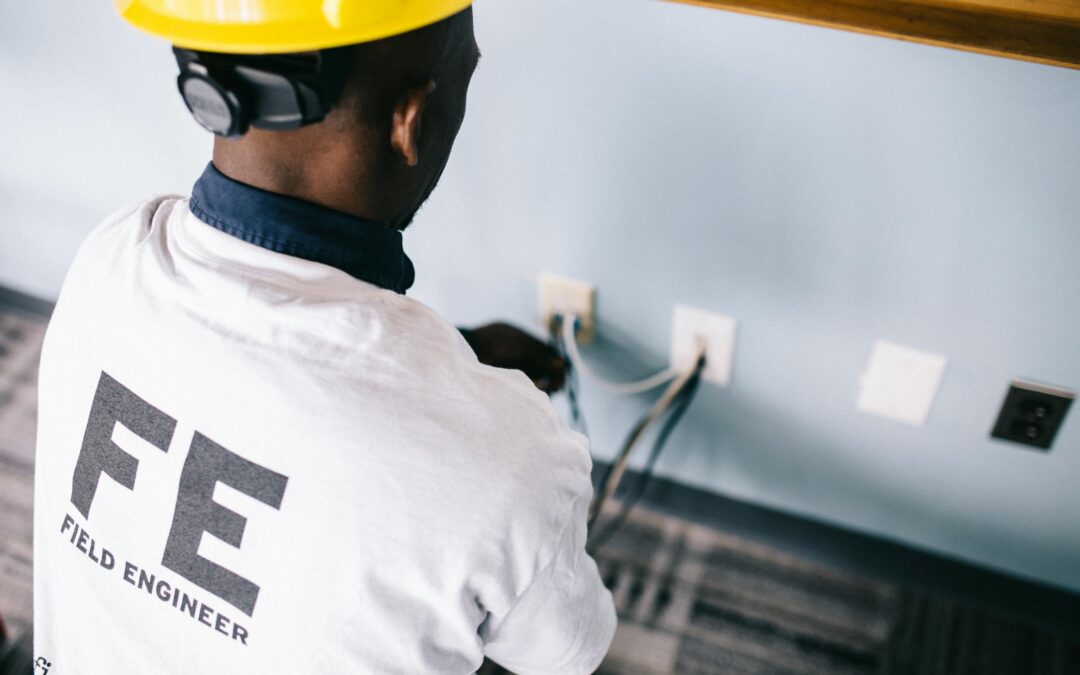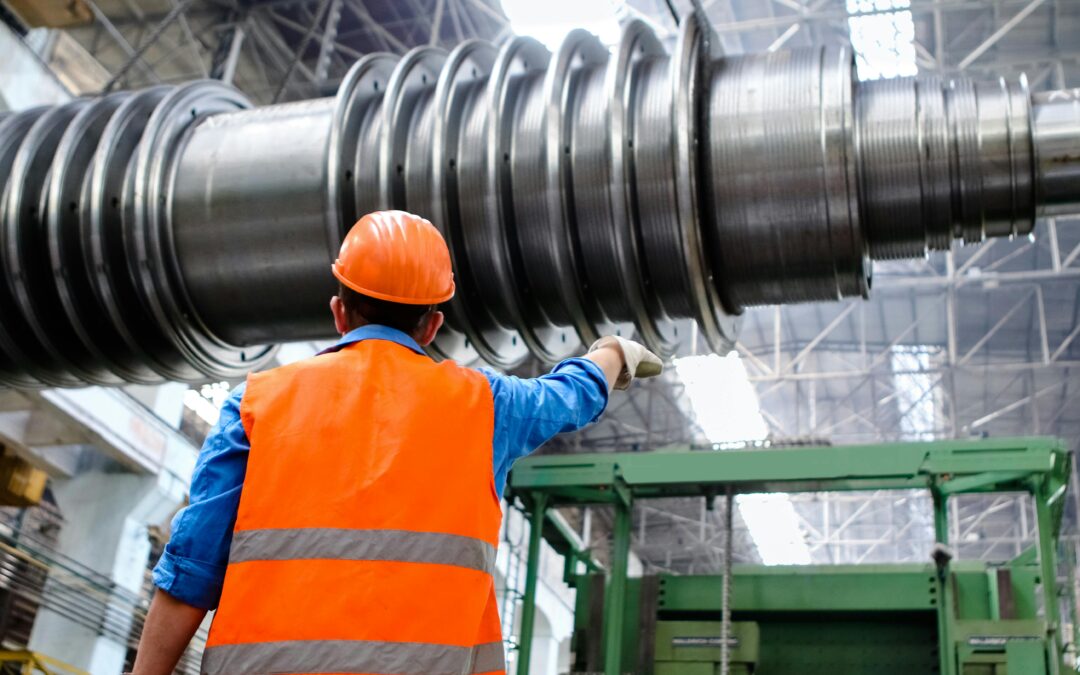Why Skilled Pipe Fitters Are in High Demand
In the industrial and construction sectors, pipe fitters play a critical role in ensuring mechanical systems operate smoothly and safely. From power plants to refineries, these skilled tradespeople are responsible for assembling, installing, and maintaining piping systems that carry everything from water to high-pressure steam.
But with demand for infrastructure and industrial projects at an all-time high, companies face increasing pressure to hire pipe fitters quickly, without compromising on skill or safety.
This article will explore the essential skills, certifications, and a practical hiring checklist that employers can use to ensure they bring the right talent on board.
The Role of a Pipe Fitter in Industrial Projects
Pipe fitters are not simply laborers—they’re technical experts who:
- Install, assemble, and repair complex piping systems.
- Interpret and apply technical drawings and blueprints.
- Ensure systems meet strict safety and compliance standards.
- Work with materials ranging from carbon steel to stainless steel and alloys.
Given the complexity of their role, finding qualified NCCER pipefitter professionals with strong blueprint reading skills is crucial for project success.
Key Skills Every Pipe Fitter Should Have
When looking to hire pipe fitters, employers should prioritize candidates who demonstrate a balance of technical, mechanical, and safety-focused skills.
1. Blueprint Reading and Interpretation
A cornerstone of pipe fitting is the ability to read blueprints and schematics accurately. Pipe fitters must understand dimensions, layout requirements, and welding symbols to ensure precise installation.
2. Welding and Fabrication Skills
Many pipe fitters are trained in welding, enabling them to cut, join, and fabricate piping components on-site. Proficiency in SMAW, GTAW, or GMAW welding processes is often required.
3. Mathematics and Measurement
Pipe fitting requires precise calculations of angles, measurements, and tolerances. Strong math skills help ensure accuracy in cutting and alignment.
4. Problem-Solving Ability
Unexpected site conditions and design adjustments are common. Skilled pipe fitters can troubleshoot and adapt while maintaining compliance.
5. Safety Awareness
From handling pressurized systems to working at heights, pipe fitting demands a strong commitment to safety protocols.
Essential Certifications for Pipe Fitters
Certifications provide assurance that a candidate has been properly trained and tested. Employers should look for:
1. NCCER Pipefitter Certification
The NCCER pipefitter certification is widely recognized across the U.S. It validates expertise in layout, blueprint reading, safety, and installation. Candidates with this certification bring proven knowledge and standardized training.
2. OSHA Safety Training
Pipe fitters often work in hazardous environments. Completion of OSHA 10 or OSHA 30 training ensures awareness of workplace safety standards.
3. Welding Certifications
Many projects require pipe fitters who are also certified welders. Look for certifications such as AWS (American Welding Society) or ASME standards.
4. Specialty Certifications
Depending on the industry, additional certifications may be required, including:
- Rigging and hoisting safety.
- Confined space entry training.
- Pressure piping code compliance.
Hiring Checklist: How to Hire Pipe Fitters the Right Way
When it comes to hiring pipe fitters, a structured approach saves time and ensures quality. Here’s a step-by-step checklist for employers:
Step 1: Define Job Requirements Clearly
- Outline required certifications (e.g., NCCER pipefitter, OSHA).
- List necessary technical skills (blueprint reading, welding, fabrication).
- Specify industry experience (power plants, refineries, commercial construction).
Step 2: Screen for Safety and Compliance
- Verify OSHA training and site-specific safety certifications.
- Conduct background checks and drug testing if required.
- Ensure candidates understand PPE and safety culture.
Step 3: Evaluate Technical Competence
- Assess blueprint reading ability through a practical test.
- Confirm hands-on experience with tools and materials.
- Review past projects or employer references.
Step 4: Test Problem-Solving and Adaptability
- Present candidates with real-world scenarios to gauge decision-making skills.
- Evaluate ability to troubleshoot under pressure.
Step 5: Partner with an Industrial Staffing Agency
Working with a staffing and recruiting agency specializing in industrial roles can streamline the process. Agencies maintain a vetted pool of qualified NCCER pipefitters who are job-ready and safety-certified.
Benefits of Hiring Certified Pipe Fitters
Hiring certified professionals offers several advantages:
- Fewer Safety Risks – Certified workers are trained to handle hazardous conditions.
- Reduced Downtime – Skilled tradespeople complete tasks efficiently, keeping projects on schedule.
- Higher Quality Work – Proper installation reduces rework and long-term maintenance costs.
- Regulatory Compliance – Certification ensures adherence to industry codes and standards.
Common Mistakes Employers Make When Hiring Pipe Fitters
Despite best intentions, many companies make avoidable hiring mistakes:
- Rushing the process and hiring based on availability rather than skill.
- Skipping verification of certifications and safety training.
- Underestimating blueprint reading skills leads to costly errors.
- Failing to partner with a staffing agency leads to delays in sourcing talent.
Avoiding these pitfalls ensures a safer, more efficient workforce.
Case Study: Hiring NCCER Pipe Fitters for a Refinery Project
One refinery faced a staffing shortage mid-project, threatening costly delays. Instead of posting job ads and waiting weeks, the company turned to an industrial staffing agency.
Within days, the agency deployed a team of NCCER-certified pipe fitters with proven blueprint reading expertise. The project remained on track, and safety incidents were minimized thanks to the workers’ training and certifications.
Future Outlook: Demand for Pipe Fitters
The demand for qualified pipe fitters is expected to rise over the next decade, driven by:
- Infrastructure modernization projects.
- Increased energy sector investments.
- Aging workforce retirements in the skilled trades.
Employers that establish strong hiring pipelines today will be better positioned to meet future demand.
Frequently Asked Questions (FAQs)
- What is the most important certification for a pipe fitter?
The NCCER pipefitter certification is the most widely recognized and ensures standardized training across the trade. - Why is blueprint reading important for pipe fitters?
Accurate blueprint reading ensures proper installation, alignment, and safety compliance in piping systems. - How do I verify a pipe fitter’s certifications?
Employers should request documentation and confirm credentials with certifying bodies such as NCCER or OSHA. - Can staffing agencies provide certified pipe fitters quickly?
Yes. Specialized agencies maintain a pool of pre-screened and certified pipe fitters ready for deployment. - Are welding skills necessary for pipe fitters?
While not always required, welding is a valuable skill that enhances a pipe fitter’s versatility on projects. - How long does it take to hire pipe fitters through an agency?
Depending on availability, many agencies can provide certified pipe fitters within 24–72 hours.
Conclusion: Building a Safer, More Skilled Workforce
Pipe fitters are the backbone of industrial and construction projects. By prioritizing NCCER pipefitter certifications, strong blueprint reading abilities, and verified safety training, employers can ensure they bring the best talent to their teams.
A structured hiring process, combined with the support of an industrial staffing and recruiting agency, enables companies to hire pipe fitters quickly and confidently, without compromising safety or quality.
When done right, the result is a workforce that delivers on schedule, on budget, and with the highest safety standards in mind.


